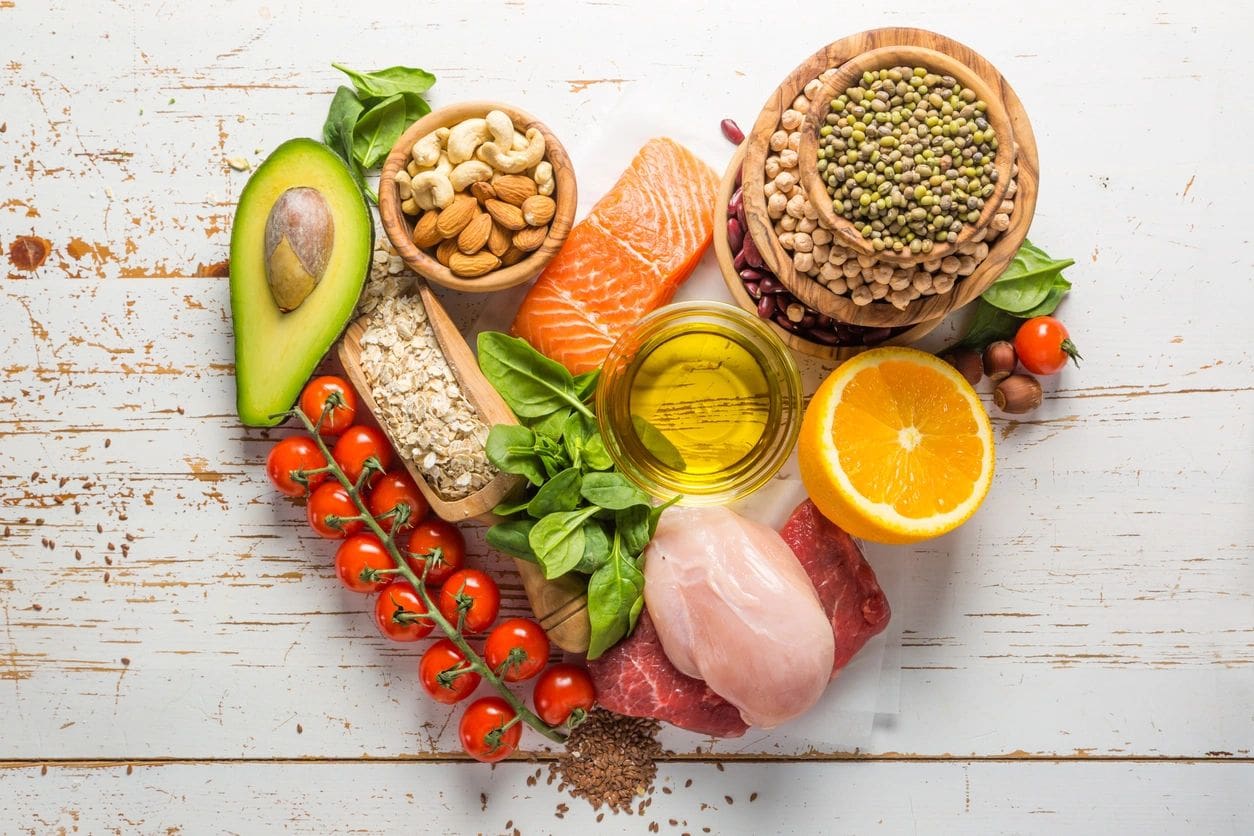
Navigating Menopause with Nutrient-Rich Foods
Menopause marks a significant transition in a woman’s life, often accompanied by various symptoms such as hot flashes, mood swings, and sleep disturbances. While it’s a natural part of aging, dietary choices can play a crucial role in alleviating some of these symptoms. Here’s a look at different types of foods that can be particularly beneficial during menopause.
1. Proteins
Proteins can be found in plants, fish, meat, and dairy sources. They are the necessary building blocks to our hormone regulation, improved lean muscle mass, blood sugar stabilization, bone strength, hair & nail strength, gut health, the list goes on. Regular protein intake with each meal will give you satiety which in turn will curve cravings. I love this topic of “the many benefits of protein” and believe me…. there will be much more to share in future blogs.
2. Fats
Healthy fats that is, not processed! Fat is an essential part of our diets and for many years our society has been misled, fats stripped from food products, and replaced with chemicals not natural to humans or any living mammal. Fats can be preventative of diabetes, improve cognitive function, reduce the risk of cardiovascular disease, and regulate hormones. Many fats are rich in omega-3 fatty acids found in fatty fish, oils (MCT, Olive), dairy, seeds, nuts (pumpkin seeds, almonds, cashews, walnuts), and leafy greens. Did you know the only oil that is non-inflammatory across all health ailments is Olive Oil? Be sure to choose an EVOO that was made in one region not a blend of regions. Fats are another topic to deep dive into and I LOVE to talk about!
3. Carbohydrates
Non-processed, “real” carbohydrates include fruits, starchy & non-starchy vegetables, and various whole grains. There are a wide variety of plant based sources full of photonutrients which are essential in contributing to a strong immune system, gut microbiome, and improving autoimmune conditions. Overall carbohydrates create an anti-inflammatory, self-regulating, and healing environment in our body. Some examples of the carbohydrate essentials such as leafy greens like spinach, kale, and Swiss chard are packed with calcium and magnesium, essential for maintaining bone health, and promote a low glycemic index. Cruciferous vegetables such as broccoli, cabbage, kale, cauliflower, brussel sprouts are loaded with the super natural chemical, sulforaphane. Sulforaphane, is a medicinal photochemical that has been linked to protecting us from cancers by activating enzymes that help to eradicate carcinogens, acting as a powerful antioxidant and detoxifies free radicals, improves mood, anxiety, boosts brain function, regulates the immune system, repairs and corrects damage due to autoimmune and heart related diseases. These nutrients help combat the increased risk of osteoporosis that often times comes with menopause.
4. Fibers
Fiber is found in plant based sources some being higher in fiber than others that include: fruits, greens, grains, seeds, aromatics (onion, garlic), legumes, and cruciferous vegetables. Fiber helps in the aid of digestion and a healthy colon. Fiber regulates blood sugar and has binding capabilities to aid in removal of bad bacteria and promotes a healthy and happy gut microbiome. The more diversity of plants introduced into the gut microbiome the healthier you will be. A huge bonus is fiber can help to ward off cancers.
5. Hydration
Staying hydrated and eliminating caffeine as much as possible is crucial and will aid in flushing toxins, helps to improve constipation, nourish cells, improve brain cognition, joint & muscle function, skin hydration, and many other benefits. Drink two large glasses of water first thing in the morning, add a lemon, cucumber, or your fruit of choice. Add a pinch of celtic salt for electrolytes if needed during the day. Wind down with an evening decaf herbal tea such as chamomile or green tea.
Conclusion
Incorporating these nutrient-rich foods into your diet can help alleviate menopausal symptoms and support overall health during this transition. Remember, each woman’s experience with peri-menopause and menopause is unique, so it’s important to listen to your body and consult with a wellness provider or coach for personalized dietary advice. By making mindful food choices, you can navigate this time of life with greater ease and well-being.
MMMMM….. if you crave chocolate this is one of my favs! Great to have after your workout!
Chocolate Peanut Butter Smoothie
Makes 2 Smoothies
2 frozen bananas (if need to reduce natural sugars use half the portion of bananas)
¼ cup of cocoa powder
1 scoop of protein powder
¼ cup of organic peanut butter or almond butter
2 table spoons of hemp, flax, and/or chia seeds
3 cups of almond milk and add ice
1 date
